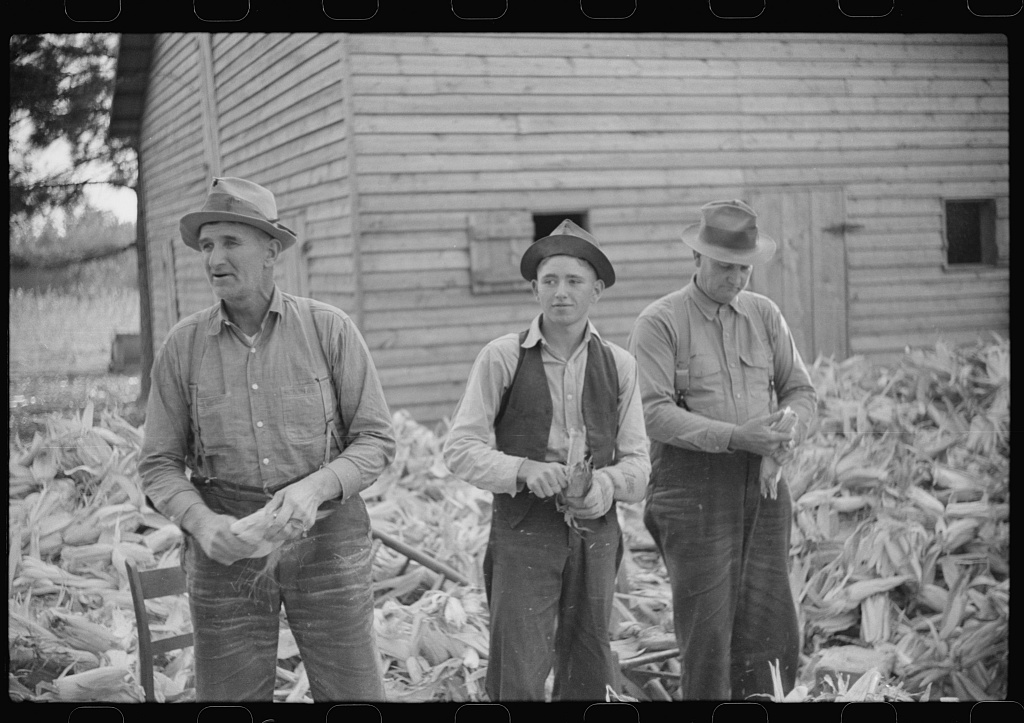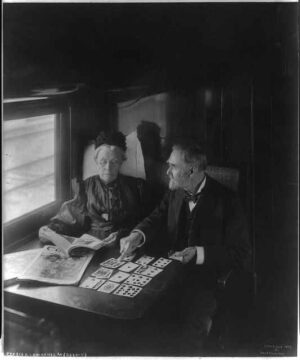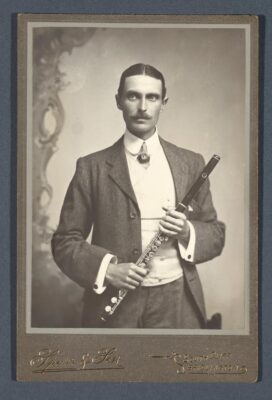Southern Legitimacy Statement: I was raised south of the Mason-Dixon line and east of the Mississippi River. I was raised on yes, ma’am and no, sir. I was raised on lightening bugs and white lightning. I was raised on grits and greens. I was raised on sweet tea and humidity. I was raised on Mama’s lap and Mamaw’s front porch. I was raised on the front pew and in the back of the pool hall. I was raised on Mama’s lap and Mamaw’s front porch. I was raised on the front pew and in the back of the pool hall. I was raised right.
Fine Folks
I’d wished him dead a thousand times, maybe more, but I didn’t actually kill Richard. Wishes don’t work that way, and thoughts don’t just manifest themselves into murder. Even if such miracles and magic did exist, I was not the only one that thought it into being. Richard Dijkstra was a dick, and that had very little to do with his name.
I made myself go to the funeral. Someone had to, I suppose. I imagined that with so few people in attendance, the intimate chapel would feel cavernous. I couldn’t have been more wrong. The room was packed. Standing room only. There were no tears or sobs, except for those of Richard’s mother. Mothers always cry. I did hear a few snickers and giggles though. I’d never seen so many smiling faces and playful winks at a funeral. Several guys high-fived each other by the entrance, and another fellow prodded Richard’s chest with his finger. That was it. We were all there to make sure Richard was dead and gone.
I kind of felt sorry for his mother but couldn’t hold that feeling very long. It was always overtaken by a sense of joy and relief. Josephine Lydia Dijkstra, bent and crumpled by time, had outlived two husbands and, now, all of her children. As far as I could tell she was the only person in attendance that truly cared for Richard, and, therefore, the only person who wasn’t invited to the celebration of death, beer bust, and bonfire at Jones Farm later that evening.
Jacob Jones handed out small flyers like they were cigars after the birth of a first child to everyone there, including the funeral home staff. Jacob had started planning the event moments after learning that while attempting to rob a local convenience store Richard’s heart had failed him. Most of us had never considered that Richard even had a heart.
The memorial lasted less than twenty minutes with no graveside service afterward. The exuberant crowd poured into the parking lot, forming small, fierce gossip circles. The parking lot social lasted twice the length of Richard’s service. The laughter and chatter increased in loudness and intensity, only pausing when Mrs. Dijkstra was escorted out by Mr. Kemp, the funeral home director. Again, I felt a fleeting ping of sadness for her. Maybe we all did. Her exit marked the end of the pre-party planning period, and folks finally started to leave.
By the time I made it to my truck, plans for the party had exploded. Everyone was going to contribute in one way or another. Clay Fabian was going to bring his ice machine. Darryl Hanks and his brothers were going to reunite their band for one last gig. Larry Hammond would borrow the mobile stage from the VFW. Robert and Barbara Harrison were constructing a wooden effigy of Richard for the bonfire. Barbara said that it would be huge, and that once on fire it would probably be visible from space. A firetruck and ambulance would be on standby. Tito’s Taco Truck and Barron’s Barbeque would provide most of the food. Sheriff Null was organizing his deputies to ensure that everyone got home safely afterward. It was going to be the party of the century.
For my part, I turned a ten pound bag of Idaho’s finest into a batch of my famous potato salad, mixed up five gallons of sangria, gathered all of my camp chairs, a flashlight, and a six-foot folding table. When I arrived at the farm, the Jones boys had gone all out. They’d bush hogged two fields and a driving lane, put up signs directing where to park, where to set up tents, chairs, and coolers, and had four different generators in place for the food truck and stage areas. The younger generation of the Jones clan manned golf carts and side-by-sides, all generously supplied by Macon Brothers’ Wheels and Deals just for the occasion. Those kids hauled people and wares from the parking area to the main party field for hours.
On one side of the large field, nearest the corn stands, Tito and Barron set up their trucks beside Fabian’s ice machine. Further down, in the same line, were porta-johns provided by Patton Construction. At one far end of the field was the bonfire area. A crane was lifting up the Harrison’s creation. It was at least eight feet tall and partially covered in a heavy white cloth. On the opposite end of the field, volunteers from the VFW had set up the stage, complete with colorful lights, microphones, and a sound system. Cabot County had never seen anything like this before, and all accomplished by enthusiastic volunteers in under forty-eight hours.
Hundreds of people gathered in the fields south of town to celebrate the death of our local villain. It would be impossible to list all of the grievances against Richard. He’d spent his lifetime annoying, aggravating, and assaulting the decency of the townsfolk. There was barely a soul over the age of thirty that Richard didn’t owe—be it money, promised labor, or an apology. In my case it was a wrecked car, stolen property, and a year and a half of my life that I’d never get back.
Some of his antics were fairly benign—the kind of stuff that would make a teenager a school legend for a semester or two—like smashing every Halloween pumpkin in sight or pulling up the newly planted town square flowers by their roots. More than once, he arrived late to the Baptist Church Sunday service completely drunk, eventually falling asleep, snoring and farting through the benediction. Martha Bowles swears she saw him take money from the collection plate once. The ushers took care to avoid him from then on. Richard was officially and permanently banned from all school sporting events due to his proclivity of jeering the local teams. The final straw was when he made loud, unmistakable oinking noises when the homecoming court was presented midfield.
There were other things though, serious things. Richard nearly kicked Geraldine Marcum’s dog, Pepper, to death. It’s true that Pepper never seemed to stop barking, but still. Geraldine’s heart was broken when she had to put Pepper down, and Richard spent some time in the local jail as a result. That wasn’t the first or last time Richard was a guest of the county detention center. One night when he was pilfering the trash bin behind Mortenson’s Hardware, he found a box of partially used cans of spray paint, and then proceeded to spray lines across every commercial building on Main Street. Brian May, an Eagle Scout hopeful, meticulously cleaned those bricks for weeks.
Richard officially lived with his mother, Josephine, but he was often found sleeping elsewhere—the Mason’s front porch swing, the tree house in the Phillips’s backyard, Jacob Jones’s barn, and probably worst of all, Robert and Barbara Harrison’s home. They’d returned from a vacation to the coast to find their house in a disgusting state. Trash was everywhere, the refrigerator door was open, and someone had actually defecated in their cat’s litter box. They found Richard completely nude and sleeping soundly in their king size bed, sprawled out like a starfish. Robert pelted Richard with a boot, sending him into a panic. He ran out of the house and straight down Bishop Lane at full speed. Indecent exposure and public nudity were added to Richard’s charges. Furthermore, Dorothy Sanders blamed Richard for her need to explain the finer points of human anatomy to her then four year old granddaughter.
As the sun was setting behind the cornfields, Jacob Jones stepped up to the microphone. “Everyone, if I could have your attention for just a few minutes, please. First, I’m not even going to attempt to thank everyone that had a hand in this thing. I think just about every business and citizen in our town has gone above and beyond to ensure this is an evening we won’t forget anytime soon. I know everyone is ready to get this thing kicked off right. Before the Hanks boys come up and give us one hell of a show, let me draw your attention to the back field. Barbara? Robert? Can you hear me?”
Robert Harrison waved his arms in response.
“Ok, everyone, it’s time. Whenever you’re ready!” said Jacob.
The crowd erupted in enthusiastic cheers and shouts as the Harrison’s tugged the cloth away from the wooden behemoth. It was constructed of remnants of two-by-fours, drift wood, mangled branches, and miles of wisteria vines. The inside was stuffed with kudzu and hay that stuck out here and there like porcupine quills. The Harrisons had created some kind of giant forest monster straight out of black and white films of yesteryear. Across the chest, in oversized, capital letters the name DICK was scrawled in vibrant red spray paint, no doubt donated by Harold Mortenson. The crowd went absolutely wild as the Fire Chief lit the kindling surrounding the crude statue of Richard Dijkstra. Simultaneously, Darryl Hanks and the Two Timers kicked off their set with a rendition of “Another One Bites the Dust.”
The celebration was officially underway. People danced, ate, and drank too much. Folks swapped stories about Richard’s antics, laughing wildly as they did so. Small children chased lightning bugs. The older kids played flashlight hide and seek in the adjacent cornfields. Darryl and his brothers performed for forty-five minutes straight before announcing their first break. By that point, only a third of Richard’s wooden likeness remained and was attended by a small crowd roasting marshmallows and wieners.
Jacob Jones asked if anyone wanted to come up on stage and sing or talk while the boys got some refreshments. It didn’t take much prodding to get the Madison twins to volunteer. Those girls had just captured the first place trophy in the Cabot County Community Center Annual Talent Show for their original song “Mama Ain’t Here.”
Terry and Tammy Madison were barely into the second verse of their song when squealing tires and a fast approaching car horn interrupted. The girls stopped singing and screamed. The crowd nearest the stage jumped to their feet as Josephine Dijkstra barreled around the corner in her black Lincoln. She lurched to a stop about five feet from the corner of the stage. Mrs. Dijkstra struggled with the heavy door, finally managing to open it, and crept to the edge of the stage.
Everyone gathered around to see what was happening.
Mrs. Dijkstra made eye contact with Jacob and said, “don’t just stand there with your mouth hanging open, Jacob Jones. Help me up these steps. I’ve got something to say to all you fine folks.” Jacob composed himself and did as he was told. He escorted Mrs. Dijkstra up the steps and across the stage to the center microphone, shooing away the Madison twins in a fluid motion. Mrs. Dijkstra tapped the microphone stand with her cane, signaling to Jacob to lower it to her miniature stature.
Josephine Dijkstra cleared her throat and smacked her lips. “You fine folks seem to be having a very good time. My boy, Richard, would have really cut up out here tonight. What a fine, upstanding community we all have here. Now I know y’all didn’t invite me here tonight to this here shindig cause I’m in mourning and cause I’m frail and because I can’t see so good at night anymore. But I know what y’all are doing out here,” she said, taking a ragged breath.
Gasps and a chorus of “oh my” swept through the crowd. Sheriff Null removed his hat, and the other men followed suit.
“I know what y’all are doing, and I’m here to support it,” said Mrs. Dijkstra as she used her cane to point at the white five-gallon buckets lining the front of the stage, prompting people to finally look up from their feet to one another in confusion. Mrs. Dijkstra reached into her collar, pulled out two damp twenty dollar bills, and deposited them in the nearest bucket. Those buckets were meant for the band as a place to put their empty beer cups and cigarette butts.
“Even during a time of true, heartbreaking tragedy the fine folks here come together in the spirit of love and hope for better days ahead. And I’m sure that the money raised here tonight will do great things for our community,” said Mrs. Dijkstra.
A few people started to clap and were quickly joined by the rest of the crowd. A line formed at the stage and handfuls of cash were dropped into the trash buckets. Not a single person looked up at Josephine Dijkstra.
“Well, you folks enjoy the rest of your evening. Null? Null, you out there?” she asked.
“Yes, ma’am. Right here,” Sheriff Null responded.
“Null, you better take me home now. I’m pretty sure that I hit a few mailboxes and possibly a cat on my way out here, and I’m bone tired,” said Mrs. Dijkstra.
All told, just shy of fourteen thousand dollars were raised that evening. Committees were formed to decide the best use of the donations. In the end, it was decided that eleven thousand dollars would go toward the building renovations for the future Youth Activities Center. The remainder would be used to fund the Second Annual Richard Dijkstra Field Festival.







